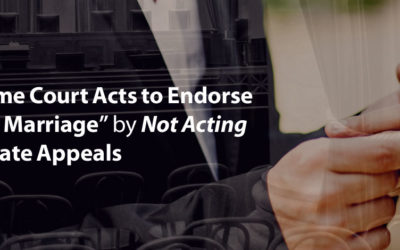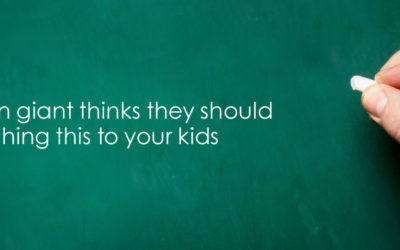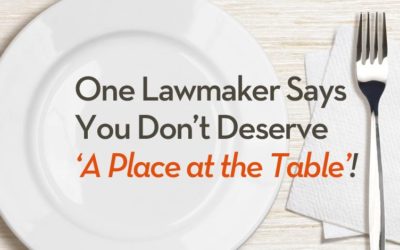Issue
Standards for Explicit Sexual Content in Schools
KEY POINTS
- School Boards are legally permitted to create policy setting standards for preventing age-inappropriate sexually explicit content in their curriculum and library.
- The standard ought not be: “As long as this book doesn’t land us in jail for giving it to a minor, the sexually explicit content is welcome in our curriculum or the school library.”
- Written policy protects students, parents, employees, and the school
and ensures better educational content will fill the finite space in curriculum and in libraries. - Schools should prioritize material that provides rich educational value over material that may provide similar value but also has age-inappropriate sexually explicit content.
- Age-Appropriate policies are not directed at viewpoint and are not banning the book from student possession. They are exercising the schools prerogative to determine what to include in its own library and curriculum.
Standards for Sexually Explicit Content in Schools
Schools must engage in line-drawing for age appropriateness of sexually explicit content in their library and curriculum. Criminal laws are one required line prohibiting schools from giving materials to minors in curriculum or library that a court deems pornographic or obscene. But what about sexually explicit content that does not rise to the extremely high bar of criminal law?
School boards are legally permitted to articulate standards that go beyond “would we land in jail for giving this book to a minor?” to prevent other age-inappropriate sexually explicit content in their curriculum and school library. Unfortunately, many schools have no policy standards for sexually explicit material beyond criminal law.
Schools with written age-appropriate standards for sexually explicit materials that differ for elementary, middle, and high schools protect students and ensures better educational content will fill the finite space in curriculum and in libraries.
But such written policies also protect the school’s staff and district from costly litigation. Even without written policy, a school librarian, principal, or school board is permitted to remove a particular title they deem age-inappropriate sexually explicit material. But with written policy standards, the school is less susceptible to baseless allegations that the title was removed for an impermissible viewpoint discriminatory reason.
School employees still have wide discretion to select and purchase books that comport with the age-appropriate standards in written policy set by the school board, and from that universe of materials, parents then have ultimate authority to make additional age-appropriate determinations for their own child and should have authority to restrict certain titles for their own child.
Individuals who desire to see sexually explicit materials in the hands of minors sometimes argue that such policies are “book bans.” Attempts at labeling common-sense school standards as “book bans” have been rejected by courts. See, C.K.-W. v. Wentzville R-IV Sch. Dist., 619 F.Supp. 3d 906, 909-910 (E.D. Mo. 2022) (“A school district does not ‘ban’ a book when, ‘through its authorized school board,’ it ‘decides not to continue possessing [a] book on its own library shelves.’”) Citing ACLU of Fla., Inc. v. Miami-Dade Cnty. Sch. Bd., 557 F.3d 1177, 1218 (11th Cir. 2009).
A parent, for example, who wants to buy sexually explicit books for their own child to read are not prevented from doing so by such school policies. School policies setting forth its own age-appropriate standards for sexually explicit content in its own curriculum and school library do not even prohibit a student from bringing their own book to school or from reading it in an appropriate time, such as study hall. But school districts do not have to put such explicit books in their own curriculum or in the school library, and such a decision by the school is not a ban on books.
Such policies treat inappropriate sexually explicit content the same regardless of whether the sexually explicit depictions or descriptions happen to be between straight, gay, or even a lone person. As such the argument made by those who desire to see sexually explicit materials in the hands of minors, that these policies are directed at LGBT people, is false.
Too many schools lack baseline standards regarding sexually explicit content in school libraries. Schools ought to spend the finite time in the day on academic excellence, and sexually explicit content detracts from that. Explicit sexual depictions and descriptions may sell, but refusal to purchase it is no ban. Districts can decide not to buy and stock sexually explicit content. If you are a school board member who desires to implement such a policy, we are glad to assist you.

Related Articles
Embracing Exile, Working for Renewal: A Report from the Pennsylvania Conference on Faith and Society
(This article was first published in the Public Discourse on 11/12/14, an online publication of the Witherspoon Institute.) Untethered to an “establishment” and or a “mainstream” that needs to be placated, today’s conservative students can experiment freely with...
Why students need to hear this message
There are some who are protesting the “controversial” guest speaker set to speak to Warwick High School students at an assembly next month. Here are our insights on what is happening. The invited speaker is Pam Stenzel. Her “controversial” message? Abstinence until...
PaFamilyVoter.com – How to make an informed decision this election
PaFamilyVoter.com - Home of the most comprehensive Pennsylvania statewide voters guide. Hopefully you have already marked your calendar on Tuesday November 4th as Election Day. It is critical for families across Pennsylvania to get out and vote your values. To do so,...
US Supreme Court Acts to Endorse “Same Sex Marriage” by Not Acting to Hear State Appeals
The Pennsylvania Family Institute expressed disappointment and dismay at the decision by the United States Supreme Court not to take up cases emanating from several states regarding “same-sex marriage.” “By choosing not to hear these cases, the Justices are allowing...
Abortion giant thinks they should be teaching this to your kids
Planned Parenthood's Attack Shows Why You Need to Know Where Governor Candidates Stand on Protecting Your Family Planned Parenthood has released a statement attacking Gov. Corbett for being opposed to a proposed mandate that would force all public schools to teach...
PFI 25th Anniversary
Yes, that’s me. My directions were to “hit the ground running” as we prepared to open the doors of the Pennsylvania Family Institute. The target date for the grand opening: September 4, 1989. 25 years ago this month. And so, about a month before opening day, we set...
New Report Shows Good News for Those with Down Syndrome
Today, in the Philly Inquirer, our friends at Susan B. Anthony List in D.C. highlight a new report showing good news for those with Down syndrome – extended life span, other physical treatments to improve quality of life, etc. Read the article. Unfortunately, many...
One Lawmaker Says You Don’t Deserve ‘A Place at the Table’!
No doubt you’ve read our warnings about two pieces of legislation being considered by our state senate and state house. Since June when a single federal judge overturned Pennsylvania’s marriage law declaring it unconstitutional, there has been a renewed push to grant...






